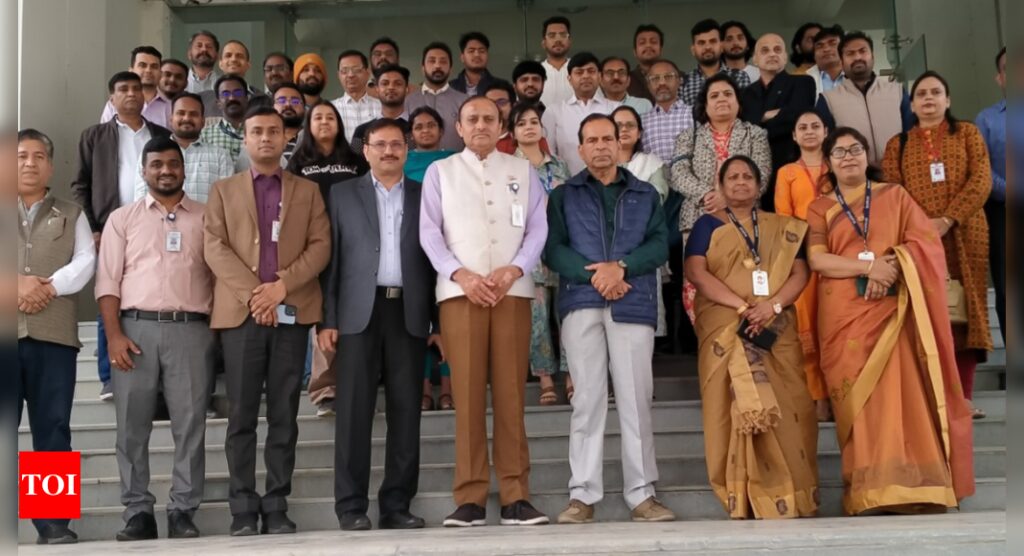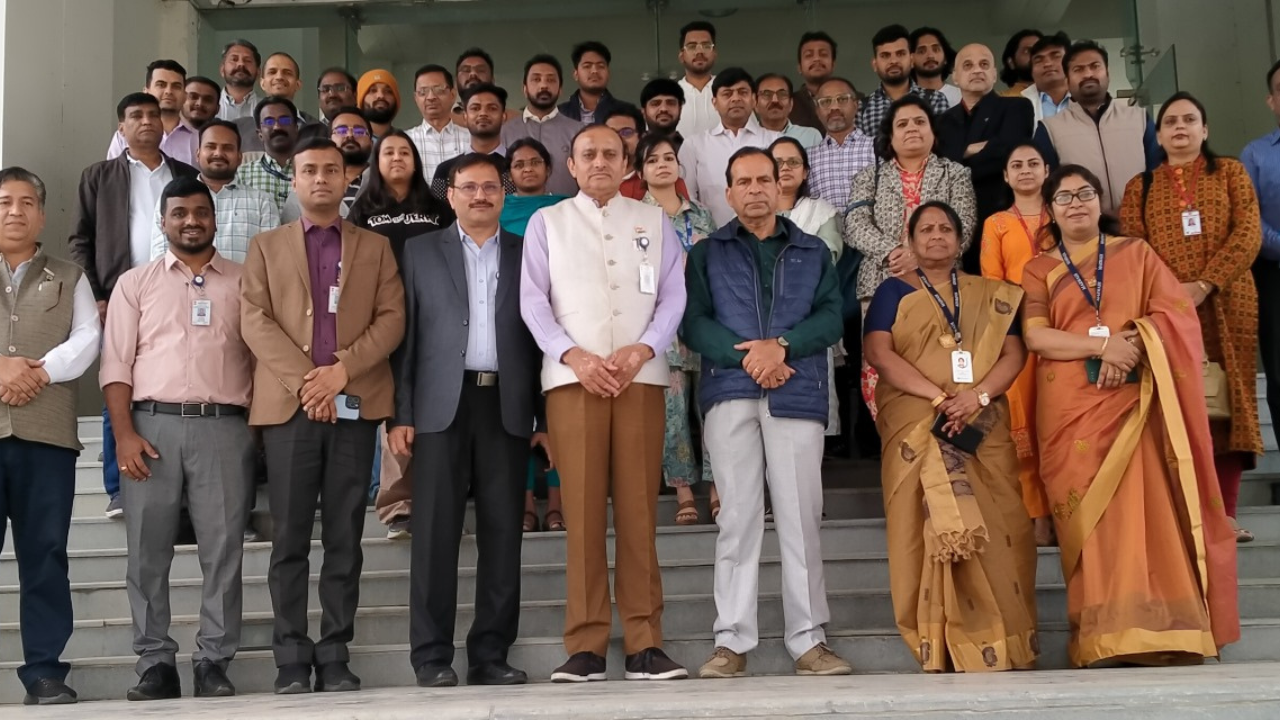[ad_1]
BENGALURU: The Indian National Space Promotion and Authorization Centre (IN-SPACe) has unveiled a pioneering ‘Train the Trainers’ short-term programme aimed at harnessing space technologies for the agriculture sector.
Developed in collaboration with the Indian Space Research Organisation (Isro) Meerut Institute of Technology (MIT), non-government entities (NGEs), and academia, the five-day course titled ‘Using Space Technologyfor the Agriculture Sector’ is set to play a pivotal role in transforming agricultural practices.The course, running from November 20-24, is hosted at theIIT Roorkee.
Vinod Kumar, director, promotion directorate, IN-SPACe, emphasised the programme’s significance, stating: “This initiative aligns with the broader goal of benefiting the common man, embodying the spirit of ‘Antyodaya’ (Centre’s scheme to provide highly subsidised food to the poorest families) and our commitment to using advanced technology for the betterment of agricultural practices, ensuring food security and sustainability.”
The comprehensive curriculum covers modules on agriculture land monitoring, pest/disease detection & incidence forecast, crop area estimation & production forecast, cropping systems analysis, soil mapping & monitoring, and agriculture drought assessment & monitoring.
“Practical aspects include soil sampling, drone and robot demonstrations, and hands-on training in applications such as remote sensing, GIS (geographic information systems), and artificial intelligence (AI) integration for farm management,” IN-SPACe said.
IN-SPACe added that the use of space technology can revolutionise precision farming and leverage satellite data and space-based assets to empower farmers with the power of information to optimise their agricultural practices with unprecedented precision.
“By analysis of climate data and weather forecasting, it will help to safeguard crops against unpredictable weather patterns… The course also examines topics such as the study of plant nutrient deficiency symptoms, advances in sensing and analytics for precision agriculture, and the fundamental applications of phytotron technology,” it said.
There’s a focus on the practical aspects of agriculture, including soil sampling, soil processing, drone and robot demonstrations, and methods of soil analysis, IN-SPACe said, adding that other practical aspects include preparation of growing media, testing of seed germination, measurement and handling of humidity, and the qualitative and quantitative exposure of light??.
“…Sessions on crop inventory and health using optical methods, earth observation (EO) based digital agriculture and global crop monitoring systems, and microwave remote sensing for crop inventory with hands-on training round off the course. Participants are also introduced to various Isro portals like Bhoonidhi, BHUVAN, VEDAS, and MOSDAC, integrating space technology with AI and ML for comprehensive farm management,” IN-SPACe said.
Developed in collaboration with the Indian Space Research Organisation (Isro) Meerut Institute of Technology (MIT), non-government entities (NGEs), and academia, the five-day course titled ‘Using Space Technologyfor the Agriculture Sector’ is set to play a pivotal role in transforming agricultural practices.The course, running from November 20-24, is hosted at theIIT Roorkee.
Vinod Kumar, director, promotion directorate, IN-SPACe, emphasised the programme’s significance, stating: “This initiative aligns with the broader goal of benefiting the common man, embodying the spirit of ‘Antyodaya’ (Centre’s scheme to provide highly subsidised food to the poorest families) and our commitment to using advanced technology for the betterment of agricultural practices, ensuring food security and sustainability.”
The comprehensive curriculum covers modules on agriculture land monitoring, pest/disease detection & incidence forecast, crop area estimation & production forecast, cropping systems analysis, soil mapping & monitoring, and agriculture drought assessment & monitoring.
“Practical aspects include soil sampling, drone and robot demonstrations, and hands-on training in applications such as remote sensing, GIS (geographic information systems), and artificial intelligence (AI) integration for farm management,” IN-SPACe said.
IN-SPACe added that the use of space technology can revolutionise precision farming and leverage satellite data and space-based assets to empower farmers with the power of information to optimise their agricultural practices with unprecedented precision.
“By analysis of climate data and weather forecasting, it will help to safeguard crops against unpredictable weather patterns… The course also examines topics such as the study of plant nutrient deficiency symptoms, advances in sensing and analytics for precision agriculture, and the fundamental applications of phytotron technology,” it said.
There’s a focus on the practical aspects of agriculture, including soil sampling, soil processing, drone and robot demonstrations, and methods of soil analysis, IN-SPACe said, adding that other practical aspects include preparation of growing media, testing of seed germination, measurement and handling of humidity, and the qualitative and quantitative exposure of light??.
“…Sessions on crop inventory and health using optical methods, earth observation (EO) based digital agriculture and global crop monitoring systems, and microwave remote sensing for crop inventory with hands-on training round off the course. Participants are also introduced to various Isro portals like Bhoonidhi, BHUVAN, VEDAS, and MOSDAC, integrating space technology with AI and ML for comprehensive farm management,” IN-SPACe said.
[ad_2]
Source link











More Stories
Congress replaces Kamal Nath, names an OBC as Madhya Pradesh chief | India News
Fire breaks out in ITBP camp in Srinagar; none hurt | India News
Parliament Security: Co-villagers give clean chit to Lalit Jha, parents to move court | India News